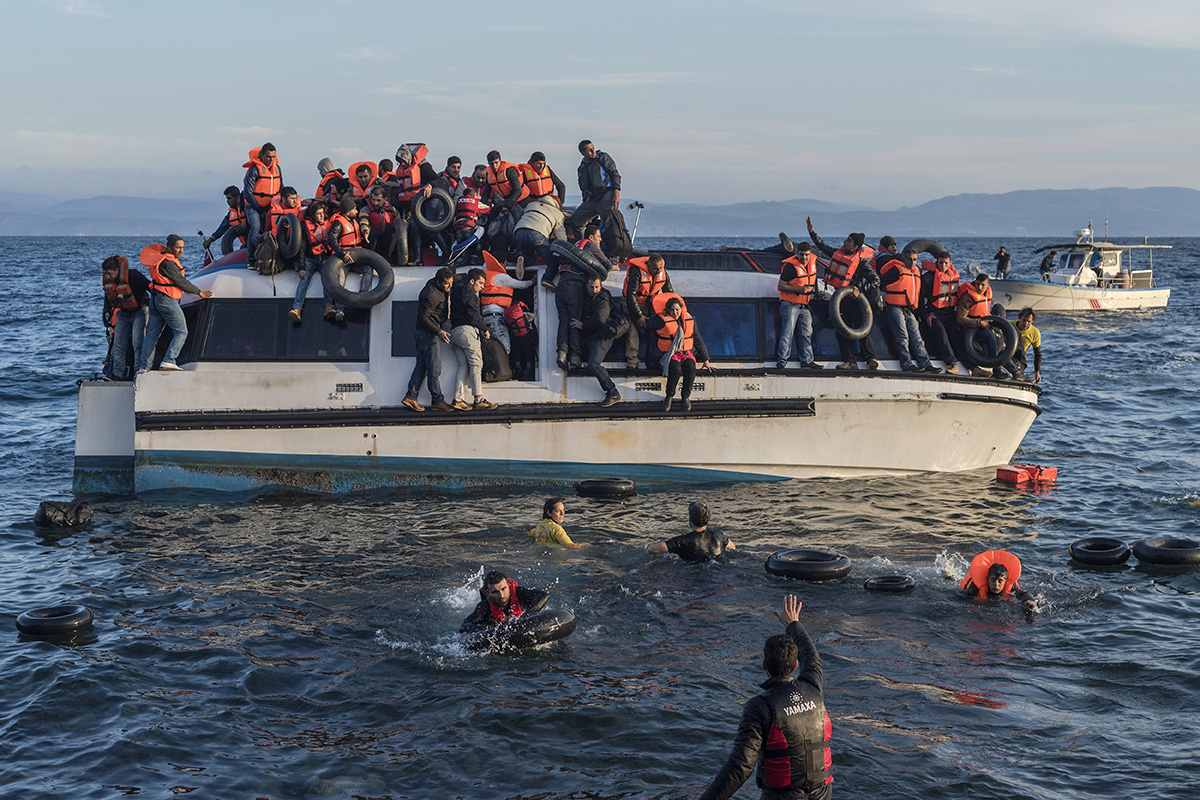Asam Aldori narrows his eyes and knits his bushy brow.
He’s choosing his words carefully.
“This country protected me — helped me, saved me and my family,” he says in broken English. “That means I must know the culture and must connect with the people: do something for this country.”
Fifty years old, Aldori lives with his three children in a modest apartment in Ottawa’s Vanier neighbourhood.
It’s a world away from their native Baghdad: a city they had to flee in 2007, after al-Qaeda threatened to kill Aldori for his work with a prominent Iraqi politician.
The family escaped to the Syrian capital of Damascus. Four years later, war found them again.
When they arrived in Ottawa as government-assisted refugees in June 2015, the Aldoris faced a challenge shared by a growing number of refugees who call Canada home: learning English or French.
According to analysis of data from Immigration, Refugees and Citizenship Canada, 54 per cent of refugees who arrived in Canada in 2014 didn’t know either English or French. It was the first time since 2002 that more than half of refugees arriving in Canada weren’t familiar with either of the country’s official languages.
Though learning a new language can be a daunting challenge — especially later in life — it’s one Aldori is determined to overcome.
“Language is very important here. Because if I want to work, I must talk. If I go out shopping, I must talk,” he says.
“I don’t sit in my home and talk only Arabic. No,” he adds, shaking his head. “I go out and talk — with anyone.”
Speaking to the Standing Senate Committee on Human Rights last May, federal Immigration Minister John McCallum said language training is a “top priority” when it comes to refugees.
It’s a priority that Emilie Coyle knows well.
“It’s paramount,” she says. “It’s the first thing you have work on — that and getting gainful employment.”
Coyle is the senior director of newcomer services with the YMCA-YWCA of the National Capital Region. Her team includes Ottawa’s Language Assessment and Referral Centre, which determines newcomers’ ability to read, write, speak, and listen in either English or French.
Coyle and her colleagues are seeing more and more refugees with little to no knowledge of English or French. Of all the Syrian refugees assessed by the centre since April, 84 per cent were found to be illiterate in their own language, never mind English or French.
That shouldn’t be surprising, she adds, because the government purposefully resettled the most vulnerable of refugees.
With so many refugees having received little in the way of formal schooling, Coyle says language schools are trying to develop new approaches to allow students to learn outside the classroom — and maybe even find work, too.
“It’s really unrealistic for us to think that they can be spending all this time sitting in a chair in a classroom,” she says. “Contrary to what some people believe, refugees are not here to live off the system.”

For now, Aldori is more than happy to be attending ESL courses five days a week, between 9 a.m. and noon from Monday to Friday. He started only two months after he first arrived, and he’s progressed two levels.
But it’s his children’s own progress that he is most proud of. None of his three kids spoke English when they came to Canada, but Aldori says two of them are already at the top of their class in school.
“It’s a good life and a safe life,” he says. “I and my family are very lucky.”



